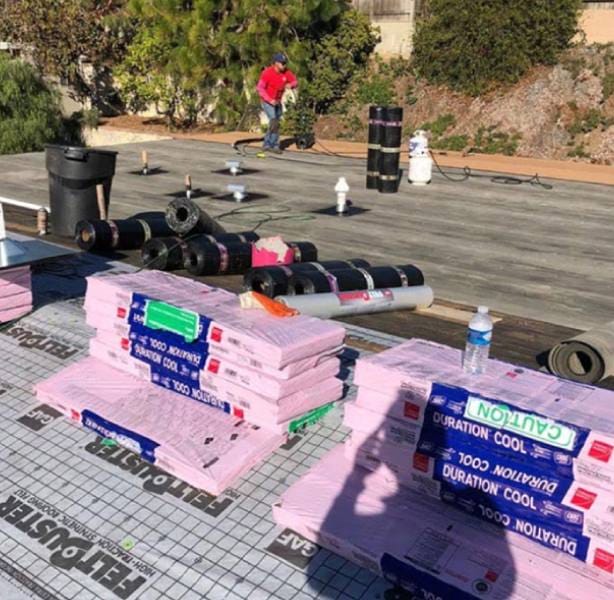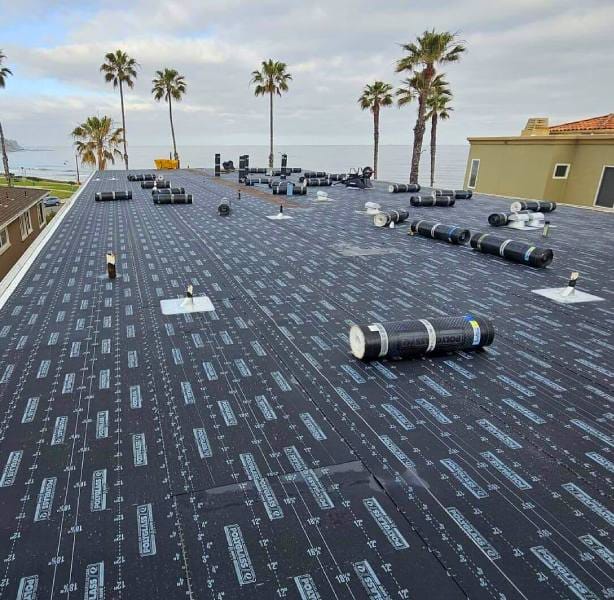Breaking Down the Numbers: Understanding the Average Cost of a Commercial Roof
Introduction
Roofing is a critical aspect of any commercial building. It serves as a protective layer, safeguarding the structure from harsh weather conditions and enhancing its overall aesthetic appeal. However, one key question often arises: What’s the average cost of a commercial roof? Whether you're a business owner or a property manager, understanding this cost can help you plan better and make informed decisions. In this article, we will break down the numbers and provide insights into commercial roofing costs, factors influencing these costs, and practical advice for working with commercial roofing contractors in Seattle.
The Basics of Commercial Roofing
What is Commercial Roofing?
Commercial roofing involves various types of roofs designed for commercial buildings. These roofs differ significantly from residential roofs in terms of materials used, design considerations, and installation methods. Common types include flat roofs, pitched roofs, metal roofs, and green roofs.
Types of Commercial Roofs
Understanding the different styles helps to narrow down potential costs:

- Flat Roofs: Often used in commercial settings due to their easy maintenance.
- Metal Roofs: Known for durability and longevity.
- TPO Roofing: A popular choice for its cost-effectiveness and energy efficiency.
- Built-Up Roofing (BUR): Consists of multiple layers that offer excellent waterproofing.
Breaking Down the Numbers: Understanding the Average Cost of a Commercial Roof
Initial Cost Estimates
The initial cost of installing a commercial roof can vary widely based on several factors. Generally speaking, you might expect to pay anywhere between $3 to $12 per square foot depending on material choices and installation complexities.
Factors Affecting Cost
- Asphalt shingles are usually less expensive than metal or TPO.
- Larger rooftops naturally lead to higher overall costs but may have lower per-square-foot expenses.
- Rates for labor can vary by region; hiring local commercial roofing contractors in Seattle may influence your budget.
- If your building has hard-to-reach areas, it may require more specialized equipment or additional labor hours.
- Costs associated with permits or inspections may add to your total expenses.
Detailed Cost Breakdown
Material Costs
Let's examine some typical material options:
| Material Type | Average Cost per Square Foot | |--------------------|------------------------------| | Asphalt Shingles | $3 - $5 | | Metal Roofing | $7 - $12 | | TPO (Thermoplastic Polyolefin) | $5 - $10 | | EPDM (Ethylene Propylene Diene Monomer) | $4 - $8 |
Installation Costs
Installation typically accounts for 60% to 70% of total project costs. Here’s how it breaks down:
- Basic installations usually range from $1.50 to $5 per square foot.
- More complex installations could go up to $8 or more per square foot depending on material type and roof features like drainage systems or insulation needs.
Understanding Maintenance Costs
Importance of Regular Maintenance
Maintaining your roof is essential not only for longevity but also for avoiding costly repairs down the line. Regular inspections can help identify minor issues before they escalate into major problems.

Typical Maintenance Costs
Regular maintenance might set you back anywhere from $0.10 to $0.50 per square foot annually depending on your roof type and condition.
Roof Lifespan Considerations
How Long Can Each Type Last?
Knowing how long different materials last can help with budgeting:
- Asphalt Shingles: Approximately 15–30 years
- Metal Roofing: 40–70 years
- TPO Roofing: About 20 years
- BUR: Up to 30 years or more
Replacement vs Repair
When should you replace rather than repair? If repair costs exceed 30% of replacement costs, it's often wiser to opt for a new roof.
Choosing the Right Contractor
Importance of Hiring Experienced Contractors
Hiring skilled commercial roofing contractors in Seattle ensures quality work which ultimately affects both lifespan and performance under various conditions.

Questions to Ask Potential Contractors
Before making your choice, consider asking:
Insurance Considerations
Does Insurance Cover Roof Replacement?
Many commercial property insurance policies cover damage caused by weather events or accidents but may not cover wear-and-tear issues unless specifically stated in your policy.
Tips for Filing Claims
If damage occurs:
Financing Options
Exploring Financing Solutions
If upfront costs are an issue, many contractors offer financing solutions that allow property owners to manage payments over time without sacrificing quality materials or workmanship.
Common Misconceptions about Commercial Roofing Costs
Misconception #1: All Roofs are Created Equal
Many assume all commercial roofs have similar pricing; however, variations in materials and labor greatly influence final costs.
Misconception #2: Cheapest is Best
Opting for the lowest bid often leads to additional problems later on due to poor workmanship or subpar materials.
FAQs about Commercial Roofing Costs
FAQ 1: What influences my total roofing cost?
Your total roofing cost will depend on material choices, size of the roof, labor rates in your area including those from reliable commercial roofing contractors in Seattle, accessibility challenges, local building codes, and permit requirements.
FAQ 2: How do I know when my roof needs replacing?
If you're experiencing frequent leaks or repairs that surpass 30% of replacement costs, it’s likely time for a new roof installation instead of continual patchwork fixes.
FAQ 3: What warranties should I look for?
Most reputable contractors offer atlasroofingwa.com warranties ranging from five years up to lifetime coverage depending on material types; always read warranty details carefully before signing any contracts!
FAQ 4: Is maintenance really necessary?
Yes! Regular maintenance prevents small issues from escalating into significant problems that could result in costly repairs or premature replacements down the line!
FAQ 5: Can I perform my own inspections?
While DIY inspections are possible especially visual checks like examining shingles & gutters; hiring professionals ensures thorough evaluations—especially regarding hidden damages!
FAQ 6: How long will my new roof last?
Longevity varies by material type; asphalt shingles last about 15–30 years while metal roofs can endure up until nearly seven decades if properly maintained!
Conclusion
In conclusion, understanding the average cost associated with commercial roofing allows property owners like yourself to make informed choices tailored towards maximizing investment returns while ensuring safety! By considering factors such as material types along with professional expertise offered through commercial roofing contractors in Seattle, you'll be well equipped when deciding what works best within budget constraints! Always seek regular maintenance services post-installation as this proactive measure helps extend life expectancy further!